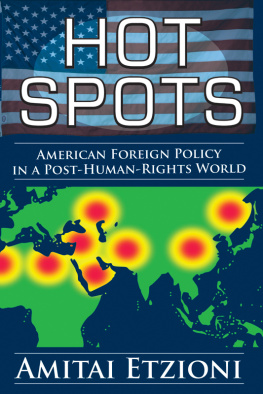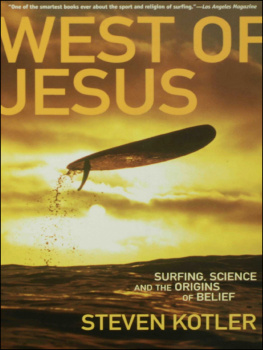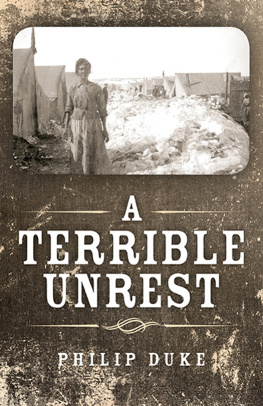

Copyright 2012 by Transaction Publishers, New Brunswick, New Jersey.
All rights reserved under International and Pan-American Copyright Conventions. No part of this book may be reproduced or transmitted in any form or by any means, electronic or mechanical, including photocopy, recording, or any information storage and retrieval system, without prior permission in writing from the publisher. All inquiries should be addressed to Transaction Publishers, RutgersThe State University of New Jersey, 35 Berrue Circle, Piscataway, New Jersey 08854-8042. www.transactionpub.com
This book is printed on acid-free paper that meets the American National Standard for Permanence of Paper for Printed Library Materials.
Library of Congress Catalog Number: 2012009455
ISBN: 978-1-4128-4963-0
Printed in the United States of America
Library of Congress Cataloging-in-Publication Data
Etzioni, Amitai.
Hot spots : American foreign policy in a post human rights world / Amitai Etzioni.
p. cm.
Includes bibliographical references and index.
1. United StatesForeign relations21st century. I. Title.
JZ1480.E92 2012
327.73dc23
2012009455
Preface
This book seeks to identify the most important challenges faced by American, and more generally Western, foreign policy. In each case, it holds that there are strong reasons for major change in the treatment of these hot spots. Moreover, it holds that there is no one treatment that fits all. Each treatment requires a distinct yet significant course adjustment.
The book starts with a discussion of the role of China in the changing global order. In early 2012, the United States pivoted to make the Far East its military and strategic first priority and downgraded the Middle East. This change in priorities is particularly important as it was accompanied by a curtailed military budget and the end of the two-war doctrine. Hence if the United States is making the Far East (actually China) its first priority, it must downgrade the Middle East. Indeed the change was symbolized by the fact that as the United States completed the withdrawal of its troops from Iraq and began the drawdown of its forces in Afghanistan, it opened a new military base in Australia and shipped Marines there.
The book argues that such pivoting toward the Far East is premature. China can and should be treated for the near future as a potential partner in a changing global order rather than contained and made into an enemy with whom a military clash is expected. At the same time, the truly hot spots continue to be in the Middle East, albeit not in Iraq or Afghanistan, but in Iran and Pakistan. The book suggests a rather different way to deal with both.
Less urgent but of great importance are the ways the West deals with the complex and varied Muslim world, with political Islamic parties and social movements, and with the Arab Awakening. Here the distinction between security and nation building becomes of great relevance for both normative and prudential reasons, as we shall see.
The threat of nuclear weapons has long been recognized as posing the gravest danger to our security, especially if terrorists are able to acquire them. However, the approach of seeking zero nuclear arms and focusing on the strategic weapons of the United States and Russia is completely misfocused. More innovative is the suggestion to create a transnational fuel bank. However, both ideas are light-years away from the urgency of the hot threats of nuclear weapons not well protected in Pakistan and Russia (especially tactical ones) and the threats posed by North Korea and soon Iran.
Less hot but still more likely to overheat than the Far East in the near future is the EU, which suffers from a major design flaw that is unlikely to be corrected. One must expect the EU to be troubled over the next years, troubles that will spill over to other nations economies.
One must expect that there will be few armed humanitarian interventions of the kind we saw in 2011 in Libya and did not see in Syria. The main reason is the tendency of the United States and the rest of the West to scale back its commitments overseas. There is nevertheless room for explaining when such interventions are justified.
The book closes with an examination of the policies that threaten and favor the promotion of human rights. Determining which rights should take precedence and examining their relationship to security raises many important questions that go well beyond the elementary notions that human rights ought to be promoted because their virtue is self evident.
Acknowledgments
This manuscript was compiled by Courtney Kennedy. Several essays have been updated and modified for this publication. The author gratefully acknowledges the following publishers and publications for permission to use previously published material:
Life, the Most Basic Right, previously published in Human Rights Journal 9, no. 1 (January 2010): 100110. Reprinted by permission of Taylor & Francis, www.tandfonline.com.
China: Making an Adversary, previously published in International Politics 48, no. 6 (November 2011, Macmillan Publishers Ltd.): 64766. Reproduced with permission of Palgrave Macmillan.
Is China a Responsible Stakeholder, previously published in International Affairs 87, no. 3 (May 2011): 53953.
Who Is Violating the International Rules? previously published in a shortened version as Is China More Westphalian than the West: Changing the Rules, as part of an exchange with G. John Ikenberry. Reprinted by permission of Foreign Affairs, 90, no. 6 (November/December 2011): 17276. Copyright 2011 by the Council on Foreign Relations, Inc. www.foreignaffairs.com.
Are Irans Leaders Rational Actors? previously published as Can A Nuclear-Armed Iran Be Deterred? in Military Review (May/June 2010): 11725.
Can the U.S. Prevent Iran from Lording Over the Middle East? previously published as Shifting Sands, in Journal of International Security Affairs 20 (Spring/Summer 2011): 8797.
Pakistan: A New, Geopolitical Approach, previously published as Rethinking the Pakistan Plan in National Interest 117 (January/February 2012): 5565.
Tunisia: The First Arab Islamocracy, previously published in National Interest online (October 26, 2011).
Illiberal Moderate Muslims Are the Global Swing Vote, previously published as The Global Importance of Illiberal Moderates in Cambridge Review of International Affairs 19, no. 3 (September 2006): 36985. Reprinted by permission of Taylor & Francis Ltd, www.tandfonline.com.
Should We Support Illiberal Religious Democracies? previously published in Political Quarterly 82, no. 4 (OctoberDecember 2011): 56773.
The Salafi Question, previously published online as The Salafi Question: Egypts Constitutional Moment in Boston Review (June 11, 2012).
Why There Cannot Be a Marshall Plan for the Middle East, previously published as No Marshall Plan for the Middle East in Prism 3, no. 1 (December 2011): 7586.
Nationalism: The Communitarian Block, previously published in Brown Journal of World Affairs 18, no. 1 (Fall/Winter 2011): 22947.
Zero Is the Wrong Number, previously published in World Policy Journal 26, no. 3 (Fall 2009): 513.
A Deeply Flawed Fuel Bank, previously published in World Policy Journal (Winter 2010/2011): 10310.
The Lessons of Libya, previously published in Military Review 92, no. 1 (January/February 2012): 4554.
The Case for Decoupled Armed Interventions, previously published in Global Policy 3, no. 1 (February 2012): 8593.
Next page







